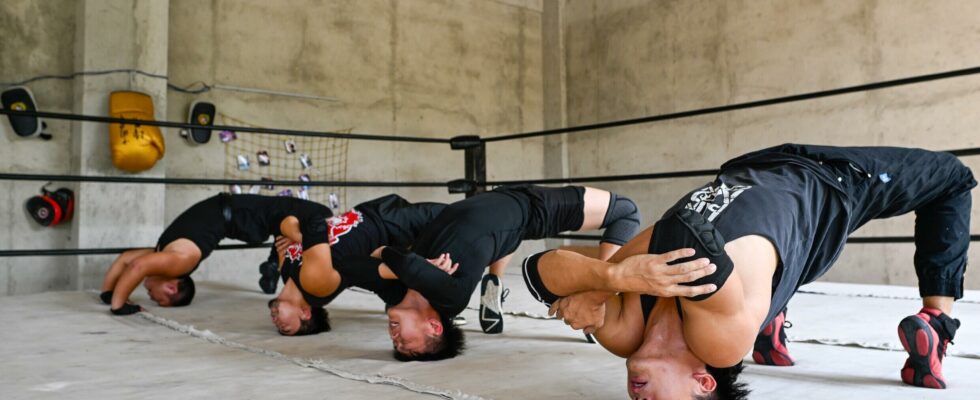Their ring? A square of mud surrounded by bamboo poles. In China, wrestlers dream of recognition for this typically American spectator sport that is still largely ignored in the Asian country.
Determined to become a professional wrestler, Wang Tao left home at age 17, but he knew the path wouldn’t be easy.
He had to endure the disapproval of his loved ones, work on the side to get by financially… not to mention the hours and hours of training in rudimentary conditions.
His efforts paid off: he is the “Belt and Road” champion (named after the vast Chinese infrastructure project around the world, called the New Silk Roads in French).
However, Chinese wrestling is still struggling to find its audience and financial stability.
” I did all kinds of odd jobs, because in the end, it’s very difficult to earn enough money to live solely from wrestling. “I’m not a big fan of this,” Wang Tao, now 23, told AFP.
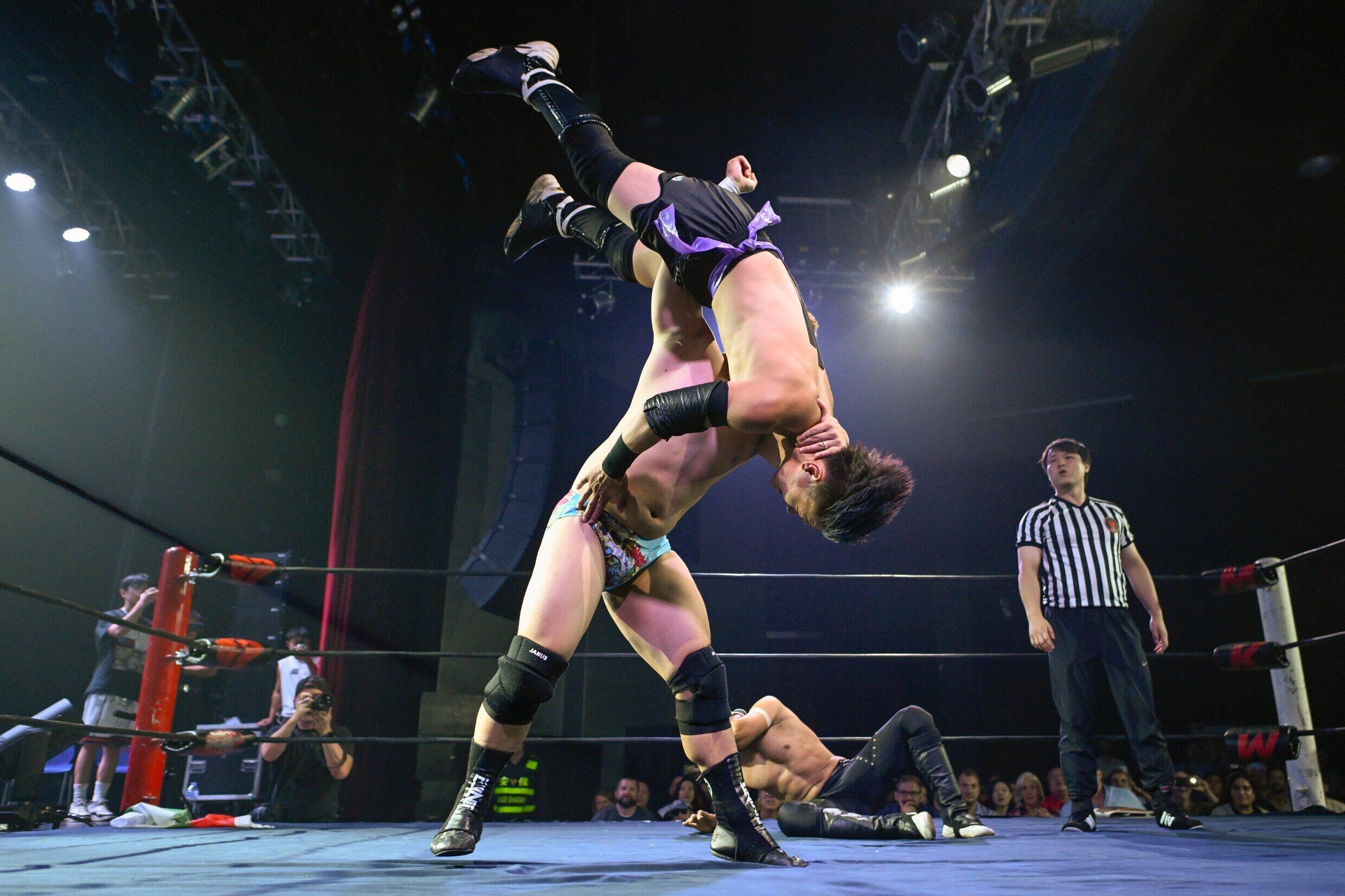
But “ I never gave up on my dream, which is to make it more and more known that wrestling is also practiced in China. “.
Hugely popular in the United States under the leadership of the professional league World Wrestling Entertainment (WWE), wrestling combines athletic prowess, melodramatic staging and colorful lycra outfits, for an annual turnover exceeding one billion dollars.
Addiction
In China, its followers compete mainly for the love of the game, without real recognition or financial rewards.
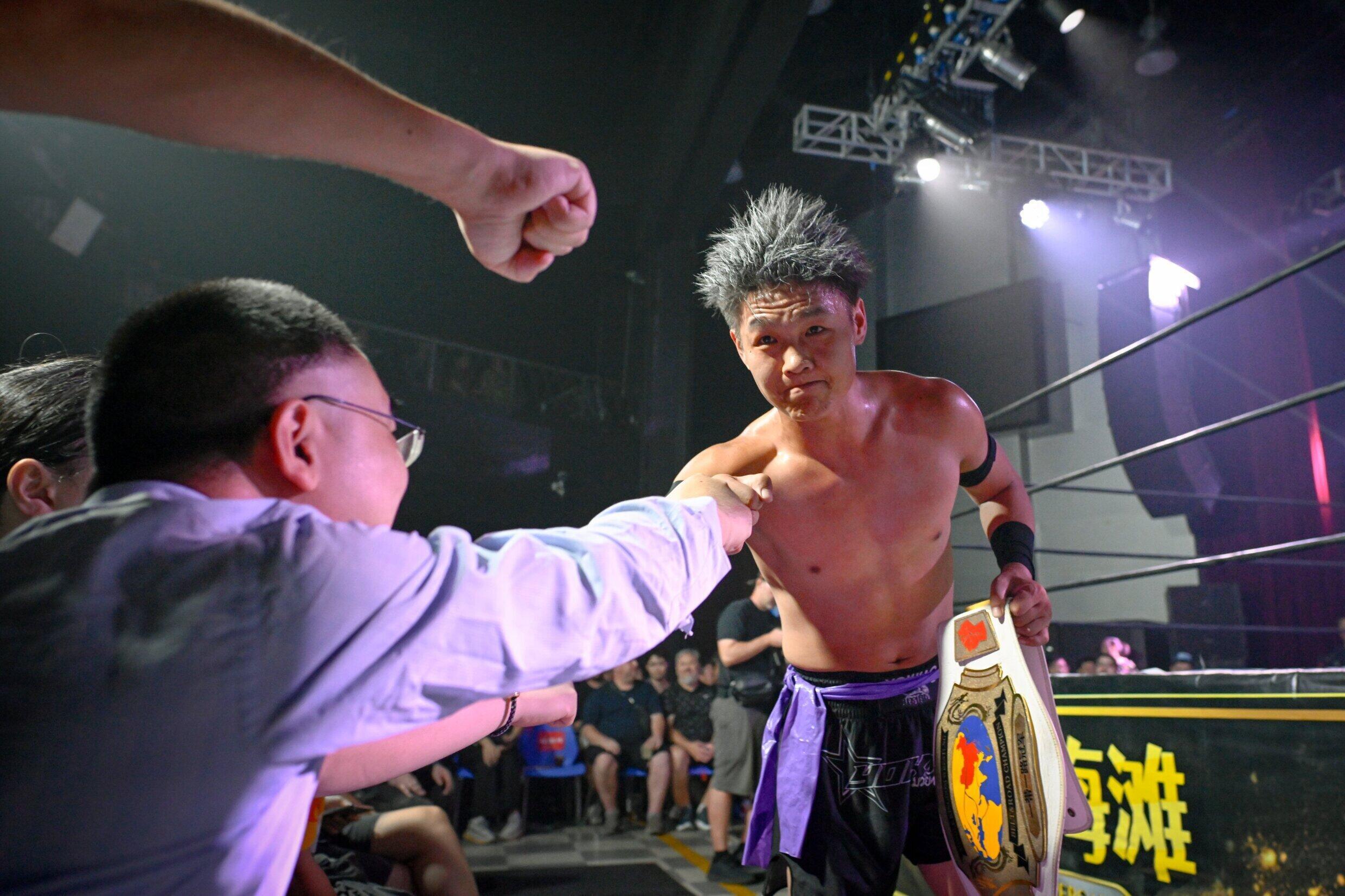
Wang Tao developed a passion for wrestling after watching the movie “The Wrestler” starring Mickey Rourke. He dropped out of high school and went to the north of the country to train with other Chinese wrestling enthusiasts.
” I tried to explain to my family (…) but none of them agreed, they didn’t understand and didn’t support me ” he says.
They have come to terms with it now, although they continue to hope that he will find ” a normal job “.
It must be said that Wang Tao’s training sessions are anything but normal.
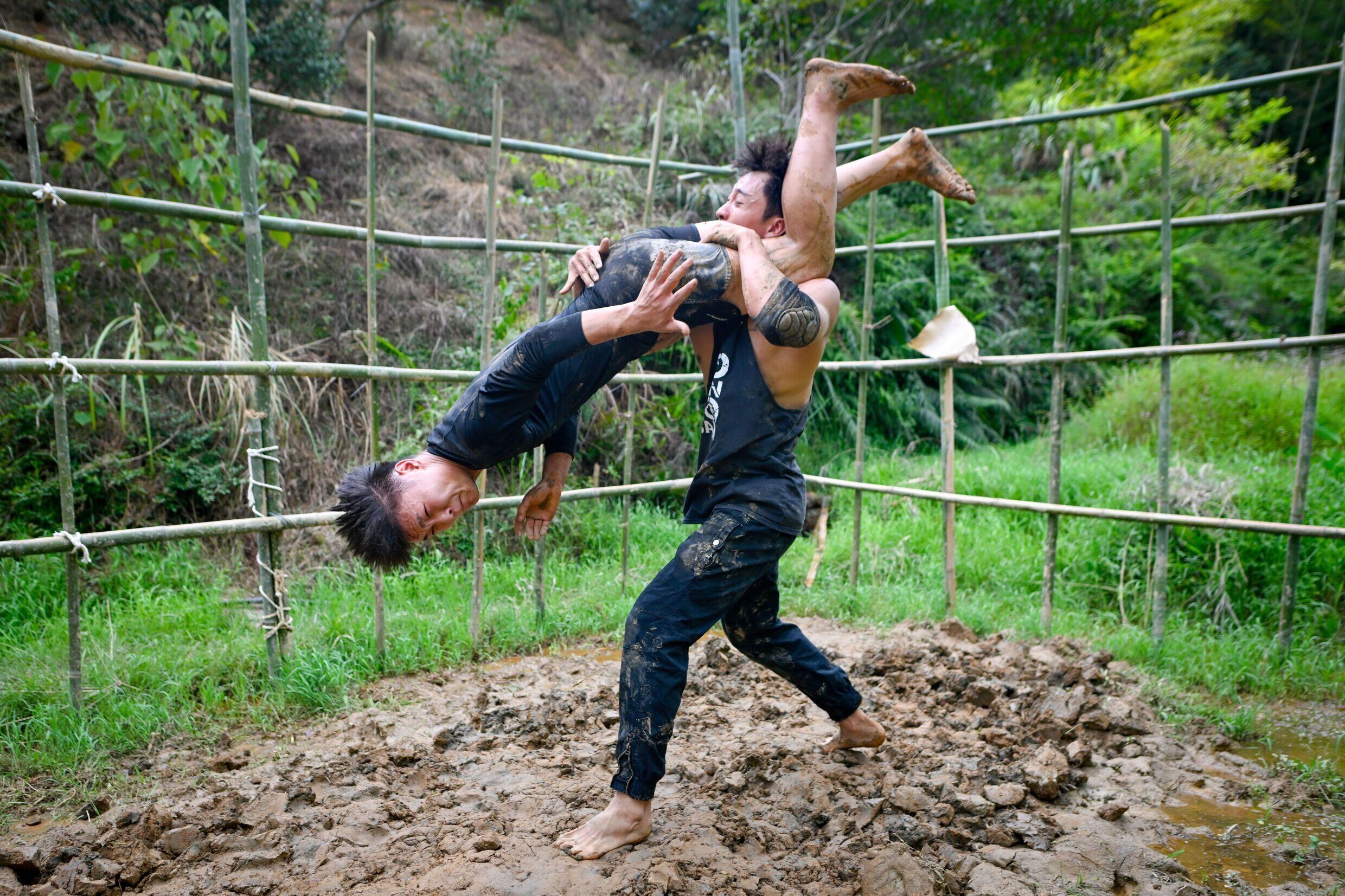
In the wilderness of southern China, he and his colleague Chen Wenbin violently hit each other, bouncing off the bamboo poles surrounding their makeshift ring or falling onto the muddy ground, under the amused gaze of the villagers.
In the neighboring town, they built a real ring on the grounds of a factory that was never finished. This is where they live stream their training sessions.
Even though the blows are simulated, with choreographed movements and a pre-decided outcome, Wang Tao has already been knocked out in a fight.
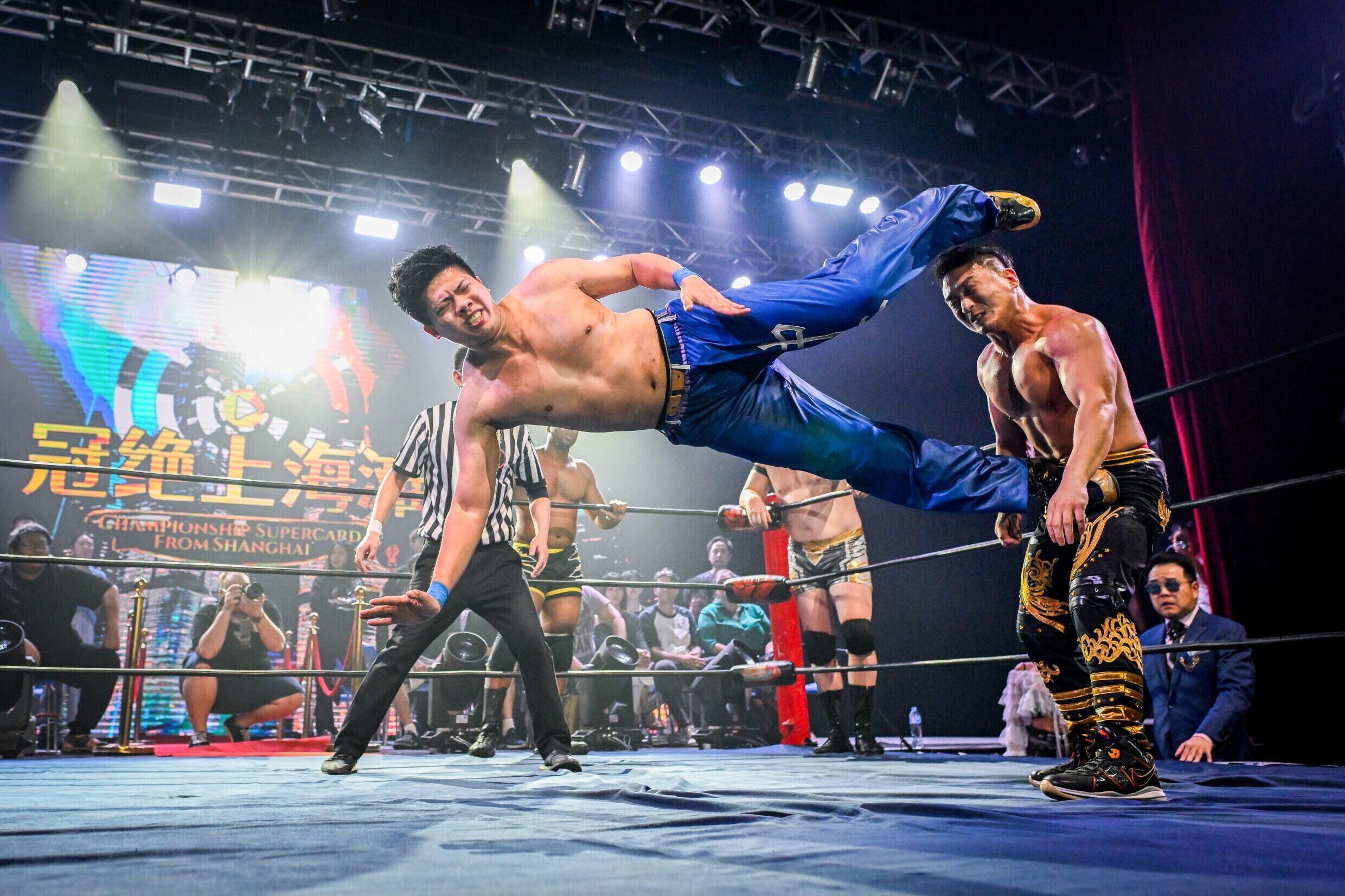
And the precarious conditions for practicing this discipline in China do not help: Chen Wenbin remembers when he performed mainly in bars, with “a hard floor”, so it was ” easy to get hurt “.
But, as Wang Tao says, the addiction is too strong to stop. I love it so much that it doesn’t matter if I get hurt, I’ll keep going “.
“More followers”
Recently, he participated in the Supercard from Shanghai, a competition organized by a local promoter, Middle Kingdom Wrestling (MKW).
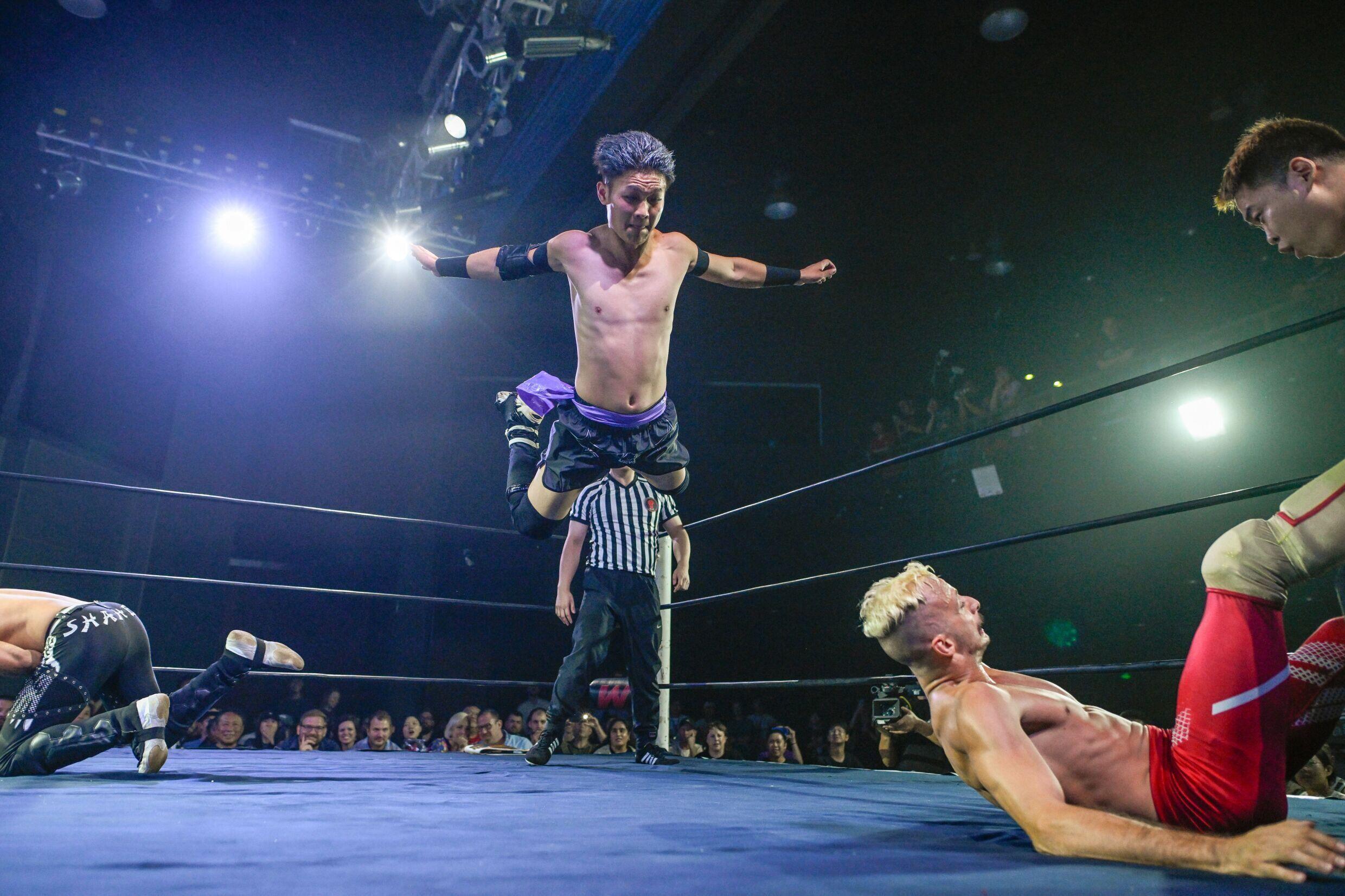
Walking down a red carpet to the ring, he appeared transformed: slicked-back hair and wearing a black scaly vest, he suddenly looked nothing like the gentle, shy Wang Tao of everyday life.
Climbing like a cat on the ropes, he roared at the enthusiastic crowd and, after a thrilling four-way fight against a Chinese, a Hungarian and an Emirati, he managed to retain his title of “Belt and Road” champion.
The audience was small – just under 400 people – but their shouts, the thunderous music and the play of lights made for a spectacle.
” We clearly have more followers, more people following us than ever before. ” says Adrian Gomez, founder of promoter MKW, who hopes that ” more people can live » wrestling.
But the audience remains confidential: on the evening of the Supercard, only 125,000 Internet users followed the match online, a drop in the ocean in China.
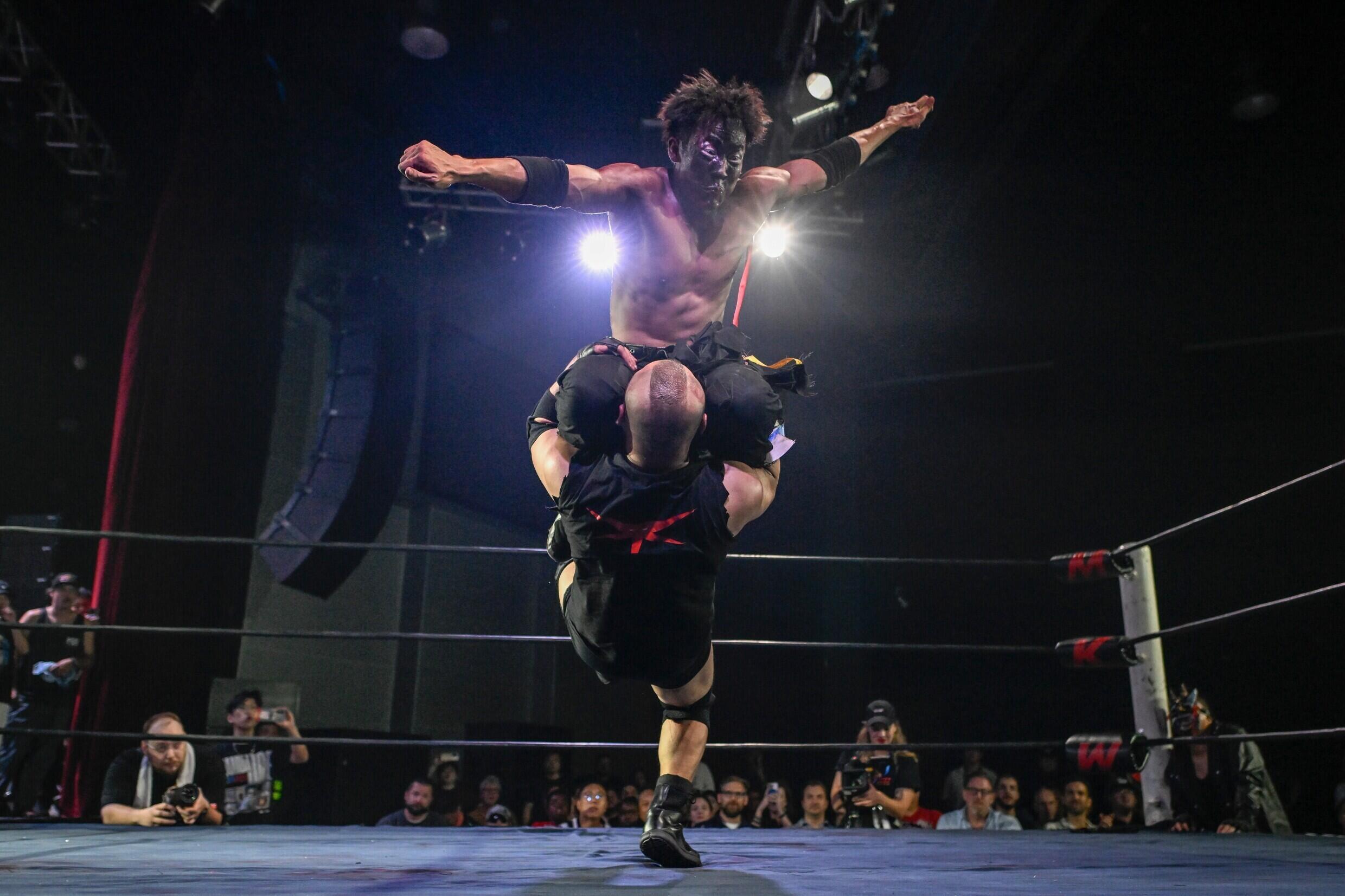
The potential is there, though. On the short-video app Douyin (China’s version of TikTok), WWE China has four million subscribers, and nearly 35 million people like its content.
” The market is huge in China, but it has not yet been fully opened up. ” in wrestling, sighs Chen Wenbin, who lost his fight in Shanghai: his face painted black, he was thrown out of the ring, onto a table and then onto a row of chairs, by The Slam, a pioneer of wrestling in China.
